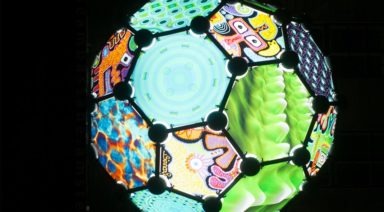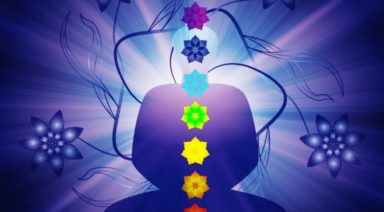Dr. Jack Kruse Explains the Importance of Sunlight Vitamin D for Health

Of all the health secrets, one of the most sought-after is how to optimize our health, and a common question is why health and healing have to be so complicated. But perhaps it doesn’t.
Neurosurgeon Dr. Jack Kruse carries a simple message to think about how exposure to sunlight has gotten a bad rap over the past few decades and how our relationship to the sun is the key to staying well and energized.
Dr. Kruse says we seem to have forgotten that the sunlight’s system of photosynthesis supports most of the food chain on this planet. And, since our skin is derived from neuroectoderm (cellular structures associated with the brain and nervous system) we rely on the sun for photosynthesis to make vitamin D to protect our health. Vitamin D is too often overlooked by modern medicine in its role to keep us alive and healthy. Maybe, suggests Kruse, we need to rethink our position on Vitamin D and how we produce it.
Let There Be Light
In a recent interview, Dr. Kruse tells Regina Meredith that too many of us are continually exposed to artificial indoor light, causing us to miss out on vital factors required to boost the immune system and allow it to work optimally. Our bodies require the full spectrum of the sun’s rays to produce vitamin D, a hormone naturally created in our skin cells and used for myriad biochemical processes.
The Mayo Clinic explains that vitamin D is needed to regulate many cellular functions in the body and acts to support anti-inflammatory responses, antioxidant activity, nerve cells, the immune system, muscle function, and brain cell activity. Beyond this, explains Dr. Kruse, vitamin D is helpful in warding off viruses and bacteria, and helping the cells efficiently create and use energy.
Vitamin D is an overlooked nutrient, especially in northern climates where sunlight can be scarce for months at a time. Kruse links a number of health issues with vitamin D deficiency, including obesity, bone malformation, psoriasis, heart failure in the newly born, osteoporosis, cardiovascular disease, arthritis, mental illness, diabetes, and even cancer, as well as most autoimmune diseases. Much of these health issues may be attributed to what Dr. Kruse calls a “quantum-biological problem,” meaning that it’s a story about sunlight and our relationship to it.
A fact of nature is that skin color, as well as other personal health factors, influences how much sunlight we need, which determines our state of health, the efficiency of the immune system, and the production of energy in our cells. People with darker skin need more sunlight than those with lighter skin to produce vitamin D. It’s not a racial problem, says Kruse, but rather a biological issue, despite how media may misinterpret it and how some physicians can misunderstand or overlook this fact. We have to be aware of our skin type and gauge our exposure to the sun accordingly, to glean the benefits of good health and to ward off a host of illnesses.
Powering Up Your Cells
Each cell in our bodies contains an energy-producing powerhouse called the mitochondria. Dr. Kruse explains that mitochondria need fuel from sunlight to produce basic electrical charges. And without enough vitamin D to produce sufficient electricity in the cells, the body cannot protect itself from myriad illnesses. So, explains Kruse, people with darker skin, those who spend too much time indoors, people who tend to be overweight, and other groups may lack the electrical energy needed to remain healthy. The cure is to maximize natural light and the intake of plenty of water while minimizing artificial light.
In “Sun: Full Spectrum Healing,” Dr. Kruse explains how sunshine provides “infrared A light,” the most important factor needed for the health of the mitochondria because it’s the only frequency of natural sunlight that can penetrate deeply enough into our bodies. However, glass—like that in your office, car, or home—blocks out 40 to 60 percent of this all-important light frequency. Once the sun’s “infrared A light” reaches the cells of your body, it helps repair or gets rid of damaged cells. This natural process of cellular death (apoptosis) and turnover (autophagy) boosts the immune system, creates T-cells to fight disease, and produces antigens to trigger the immune response.
Wake Up and Smell the Sunshine
Dr. Kruse offers a wake-up call and warns us that we should be thinking of sunlight as more of a friend than the enemy so many physicians have painted. “It is beyond me why the sun is so vilified,” writes Kruse. “We could not have evolved past single-celled organisms without it. We all learned that simple fact in school. But now with our advanced degrees and plaques on our wall, are we going to blame all skin diseases all on the sun?”
Since we are biological beings wholly dependent upon our one and only sun, it’s incumbent upon us to let it nurture our mind, bodies, and environment, and find a way to bathe in the outdoor light.
Steven Halpern's Journey Pioneering New Age Music for Healing

Halpern is a GRAMMY® nominated composer, recording artist, and researcher. He is also a founding father of New Age music and a pioneering sound healer. In a rare and inspiring interview, “Stephen Halpern: Healing the World Through Music,” the accomplished musician moves beyond the superficial aspects of music as entertainment and explores how it has the potential to move and transform us at a very deep level.
Halpern likens his music to “a tuning fork for the brain” that balances the listener’s biofield and tunes their chakras. The result is a reduction of stress, a boosted immune system, and a shift into mindfulness and inner tranquility.
Within moments of immersing yourself in this otherworldly music, the breath slows “as the music automatically evokes your natural relaxation response and nurtures body, mind, and spirit.” Adding to the basic melody line, Halpern has also infused his music with crystal bowls, bamboo and silver flute, cello, brainwave entrainment, and subliminal affirmations, all for the sake of transcendence.
Halpern’s fascination with music began in childhood with an abiding interest in sounds—the wind blowing through the trees, the steam radiator clicking out its own rhythms, and so forth. One of his first memories was when he first heard music coming from a neighbor’s apartment. He was so taken with the sound that he awoke to his life’s calling. From the earliest age, Halpern recognized the power of sound, both to disrupt health and to uplift it; some sounds made him feel wonderful while others negatively affected his digestion or state of mind.
Halpern’s next major realization occurred when he left home to attend the University of Buffalo. At that time, as a freshman, he was invited by the faculty and grad students to join a jazz jam session. He picked up his trumpet, began to play, and soon became so lost in the music he noticed his trumpet seemed to be playing itself. “I had tapped into another level of energy,” he said. Like other artists down through history, deeply moved by waves of music, he simply found himself in a state of flow. This opened a whole new world for him.
Eventually, with an education and experience working in music, Halpern became an accomplished trumpeter. As a 22-year-old grad student, he was invited to audition for a sister organization of Esalen, an institution and retreat that focuses on humanistic alternative education. With a little reprieve before his appointment, Halpern went into the nearby mountains and sat in a grove of redwoods.




































